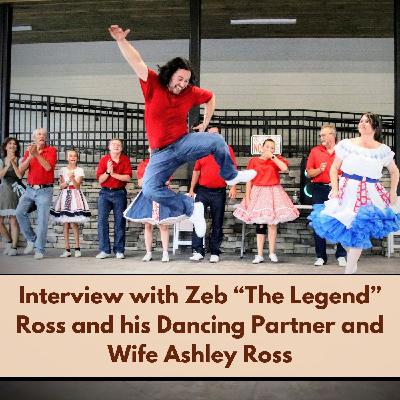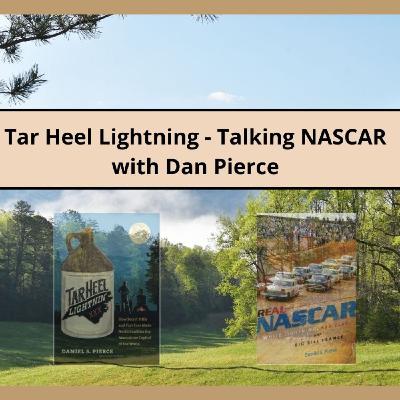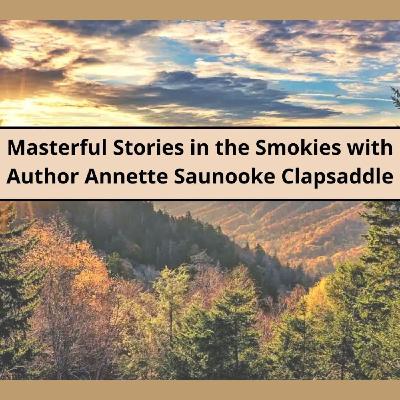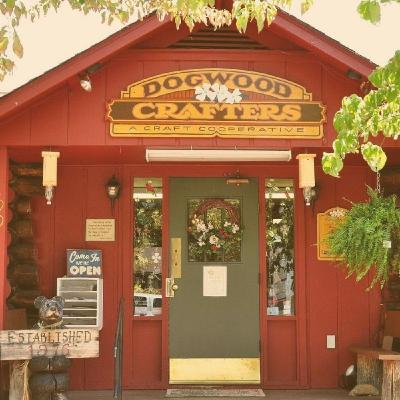Our special guest in this episode is Darren Nicholson.Darren Nicholson ended his relationship with Balsam Range and has launched out in new directions with his music.Darren shares all about his new music, what he's been up to, and how the major life-changing events in his life have shaped him into who he is today.------------------------------------------------------------------------------Transcript:00:00: 27--00:00: 55 Joseph Franklyn McElroy: Hi, this is Joseph Franklyn McElroy with the Gateway to the Smokies podcast, talking about the people and culture of the Smoky Mountains where my family has been around for a couple of hundred years. And I own a business here called the Meadowlark Motel as well as a restaurant called Homecraft. And I'm pretty proud to be back in the area and meeting and greeting, and talking to some wonderful people, like my guest today, Darren Nicholson. How are you doing, Darren? 00:00: 56--00:00: 58 Darren Nicholson: Doing great, Joseph. Thank you so much for having me on. 00:00: 58--00:01: 12 Joseph Franklyn McElroy: Sure. Last time I had you on the previous podcast series and I did a whole intro. But why don't you do three sentences of what you think is your highlights of your bio? 00:01:14--00:01:20 Darren Nicholson: I'm the world's foremost turkey hypnotist. 00:01: 20--00:01:21 Joseph Franklyn McElroy: There you go. 00:01:21--00:01:31 Darren Nicholson: I wear frilly leg warmers, and I have quite an impressive Beanie Baby collection. 00:01: 31--00:01:49 Joseph Franklyn McElroy: There you go. Let me tell you, I have to look at you quite a bit because you gave me a shirt with I think it was a picture of your album of you with a rose in your teeth doing a deep sort of lunge in your underwear, right? 00:01:50 --00:01:53 Darren Nicholson: Yes. It's a provocative pose for an early morning. 00:01: 53--00:02:14 Joseph Franklyn McElroy: The problem is you put that on a T-shirt that's soft that my wife grabbed it and she wears it to bed about once a week. So I got to look at your face in a bone about once a week. 00:02:14 --00:02:58 Darren Nicholson: It's actually the evening before pill. It's not the morning-after pill. It's the evening before you put that on and make sure nothing happens in the bedroom. That was actually a graphic. A guy in Kentucky did that graphic. His name is Jonathan Carroll. He's a great graphic artist. He was nominated for an IBMA award this year for his graphic art. But he took me and it was the if you remember, the Seinfeld episode with George Costanza on the couch that pose in his underwear. It was basically kind of a spoof on that version of this. I still have a few of those left, believe it or not. I did not sell all of those. 00:02: 58--00:03:47 Joseph Franklyn McElroy: Well, for the folks out there who might not know, which I doubt, I think everybody's going to know. But Darren is one of the foremost musicians in American and bluegrass today, and he has a solo career, and he also has been a member of several bands. Most recently, he left Balsam Range, which is one of the top bluegrass bands in the world right now. I'm assuming that you were looking to pursue new opportunities and new opera things. So what is new with your career in that regard? And I guess you have a new bluegrass booze, right? 00:03:47 --00:06:26 Darren Nicholson: Yeah, got a brand new bluegrass record that I finished last year, actually. But the first single just came out on January 29. It's called Arkansas without you. And it's a host of hot young pickers and I'm really excited about the new bluegrass project. And so far the thing, it's got raised reviews. It's been a long time since Balsam Range. I've been in the studio, and my departure from Balsam Range is definitely not an end for me. It's a new beginning. I did 15 years. I was an original member, and I'm very grateful for those 15 years, but definitely got to a place professionally and personally where I wanted to do something different. Balsam Range, a lot of people don't realize, has always been well, not always, but for the last at least ten years has been a part-time band and so with every year, the dates have seemed to be doing less and less. And I think that's by choice. I think that's what they want to do. But they only did 30 dates last year. That was what was on the calendar, around 30 dates. And I did about 250 dates on my own, so I couldn't by the time it was the smoke cleared, I did about 290 performance dates last year. And so it got to it just got to a place in my career where instead of doing a couple of part-time things, the opportunity presented itself for me to play music full-time and focus on my full-time solo career. And to be honest with you, it was a no-brainer. I had to do it for my business, and then I had to do it for my mental health, too. It's hard juggling a schedule and setting a calendar because people would try to book me for the fall of next year. And I was constantly in limbo with their schedule and what they may or may not do. It was a difference in direction of my career. And it's nothing personal, it's nothing against them. They're going to continue doing what they do, and I wish them well. But I've got a singular focus. I'm a lot happier and it's a lot less stressful trying to juggle a bunch of things, so I'm in a much better place. 00:06: 26--00:07:07 Joseph Franklyn McElroy: I remember last time we talked, I listened to quite a bit of your solo stuff, right? There were some of the American, almost country music things that I really liked a lot. And you had a little bit of sort of bluesy parts to it and some real almost southern rock rifts and things like that. I thought, wow, you should be out there doing a lot on your own, which of course you were, but I think you keep rising higher, just mean yourself, right? 00:07:10 --00:09:58 Darren Nicholson: That's it. Well, that seems to be knock-on-wood, the direction things are going. And part of it is if you're always comfortable, that means you're not growing. And so I don't want to get into a place with my music where I'm doing the same sets all the time, or I'm just doing the same thing. I wanted to get outside the box, and get outside of my comfort zone. I'm writing songs. So the record you're talking about is called the man on a Mission. And that album, I had another guy produce it, Jeff Collins. And I had a whole cast of musicians that I don't normally use, and it forced me in a different direction. And that's what I wanted. I wanted something new and organic to get me out of my comfort zone and push my own creativity and my own growth, to push my boundaries a little bit. And it was a great experience. And so with this new bluegrass record, I did the same thing, but in a different direction. I've produced several records on my own, and so I know what that sounds like. So I got a young guy, a guy I play a lot of music with named Colby Laney. He's from Marion, North Carolina, and he's probably the best acoustic guitar player on the planet. Or if he's not, he's one of the leading three. He's incredible. But I had him coproduce it with me and he brought this new energy and new life to my bluegrass recordings, and that's what I wanted. I picked all musicians I'm only 39, but all musicians who were younger than me and who were all more progressive players. I did. And it just put me I'm still doing what I do. I play like I play, I sing like I sing. But with this other cast, with different musicians, it's going to have a different sound, and I want to keep doing that. There are musicians that I look up to, like Marty Stewart and Darryl Scott who marty Stewart will do a black gospel record, then he'll do a rock record, then he'll do a country record. But it's always good. But it's got a different feel. And in the last record he did, he had Mike Campbell from Tom Petty and the Heartbreakers. He had him produce it. And I like the even for seasoned musicians who have a style and an idea of music, it's good to get out of your comfort zone. And so that's what I do. 00:9: 59--00:10:47 Joseph Franklyn McElroy: I agree. One of the things that surprised me in talking to you is that you really have an artistic mind. Right. There are a lot of artists that are really focused on the craft, and you are great at your craft. There's nothing to short you there. But you also get into the whole conceptual, artistic thinking as well, about the concept of what you're doing, the concept of what you're playing, like partnering with the younger players, I think it makes your work have a depth that is unique a lot of times. So I'm pretty excited about what you're doing. How do you think it'll change your live performances? 00:10:48 --00:013:37 Darren Nicholson: It already has. Playing with Colby and just the last few years, it's reinvigorated my interest in music. And so for years and years, I would do shows and I would just show up and play, and I would go home or go do whatever. But during the pandemic, when I had some personal changes and some lifestyle changes, I've almost had this rebirth and this fire reignited in me for music. And so I find myself every day writing songs or getting my instruments out of the case and practicing at home. Plus, I play shows five or six days a week somewhere. I'm doing a lot of traveling, a lot of playing, but I'm really inspired to get better and being with young musicians with different ideas and new ideas to kind of get me out of my thing, I think it's important. I love that saying, if you do what you've always done, you'll have what you've always had. And so I want to get out of my comfort zone a little bit. I want to grow my business. I want to grow my music. And the biggest thing for me is not about when I say grow my music, I don't necessarily mean I want my name in the Marquee Lights, playing in front of 10,000 people or playing arenas. I want to do more shows, and I don't care if the shows are for less people. I

























